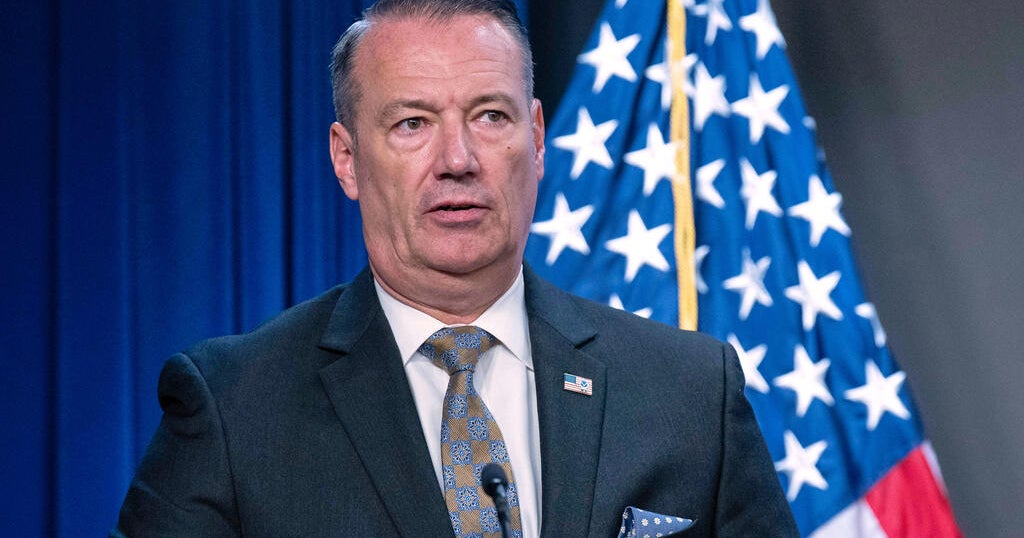ICE’s Stance on Immigration Enforcement: A Detour from Previous Policies
Washington — In a recent exclusive interview with CBS News, Todd Lyons, the acting director of U.S. Immigration and Customs Enforcement (ICE), provided insight into the agency’s new stance on immigration enforcement. Unlike prior administrations that sought to limit collateral arrests, ICE now plans to arrest anyone found to be in the country illegally, regardless of their criminal background. Lyons emphasized that this approach is a response to state and local policies that he believes hinder effective immigration enforcement.
Focus on “The Worst of the Worst”
Lyons articulated a dual focus in the agency’s enforcement strategy. Although ICE will still prioritize the arrest and deportation of individuals with serious criminal histories—those considered "the worst of the worst"—the agency is also prepared to target non-criminal migrants. Lyons expressed frustration that local law enforcement agencies sometimes categorize undocumented individuals as public safety threats yet fail to cooperate with ICE by transferring these individuals to federal custody.
"We would love to focus on these criminal aliens that are inside a jail facility," he remarked, indicating the agency’s desire to streamline efforts against more clear-cut threats. However, as sanctuary policies limit cooperation with ICE, the agency must take more drastic measures, leading to an increase in so-called “collateral” arrests—those who are not the original targets but are found during operations.
Policy Shifts Under the Trump Administration
The shift in ICE’s operational guidelines reflects a broader change initiated by the Trump administration. Following a Biden-era policy that had effectively banned collateral arrests, ICE’s mandate has been expanded significantly. The new directive aims for a substantial increase in the number of deportations, with goals set at 1 million annually, a figure Lyons acknowledged might be within reach due to the influx of funding from Congress.
Internal data reported by CBS News indicates approximately 150,000 deportations during the initial months of the Trump presidency, with around 70,000 of those involving individuals who had some form of criminal conviction—albeit many related to immigration or minor traffic offenses.
Community Impact and Backlash
While ICE’s focus on serious crime might appear justifiable, the agency has faced considerable backlash for its methods. Incidents of arresting asylum-seekers attending court hearings and conducting raids at various worksites have drawn criticism. Lyons defended these actions as necessary for “public safety,” calling the current operational model a broadening of the immigration enforcement “aperture.” This maneuver enables ICE to target a wider array of illegal immigrants and adapt its strategy to current challenges.
Accountability for Employers
Another significant development in ICE’s operations is the renewed emphasis on holding companies accountable for hiring unauthorized workers. Lyons stated that recent large-scale immigration raids targeting workplaces have yielded hundreds of arrests, signaling the agency’s tough stance against employers who exploit undocumented workers.
Notably, ICE has recently conducted operations in various states, including meatpacking facilities and farms, where they apprehended a diverse range of undocumented migrants, including minors. While some industries raised concerns about the impact of these enforcement actions on their operations, Lyons asserted that the agency intends to remain vigilant about companies that violate immigration laws.
“We’re focused on these American companies that are exploiting these laborers,” he said, framing ICE’s efforts as not just about removing workers but also about addressing systemic issues, such as forced labor and child trafficking.
Future of ICE in Immigration Enforcement
Under the current administration, ICE appears committed to continuing its proactive approach to immigration enforcement—not just against individuals, but also against businesses that enable illegal immigration. Lyons’ assertions suggest that the agency’s operational remit is broadening, welcoming an aggressive approach designed to tackle both unauthorized workers and the employers facilitating undocumented labor.
By prioritizing arrests of both individuals and companies, ICE aims to reshape its role in the immigration debate, reflecting a determined stance against illegal immigration that echoes the sentiments of the current administration. The outcome of these enforcement actions will likely influence the future discourse on immigration policy in the United States.
In this evolving immigration landscape, Lyons’ comments deliver a potent message: that ICE is not merely an enforcement agency but a multifaceted organization aiming to adapt to the demands of a complicated and contentious issue. The ramifications of these policies will undoubtedly resonate through communities across the nation.


